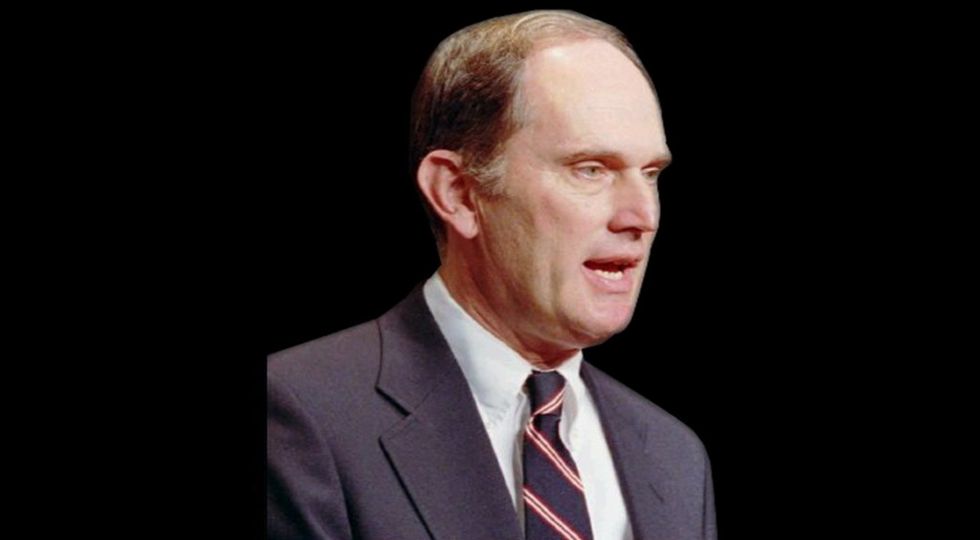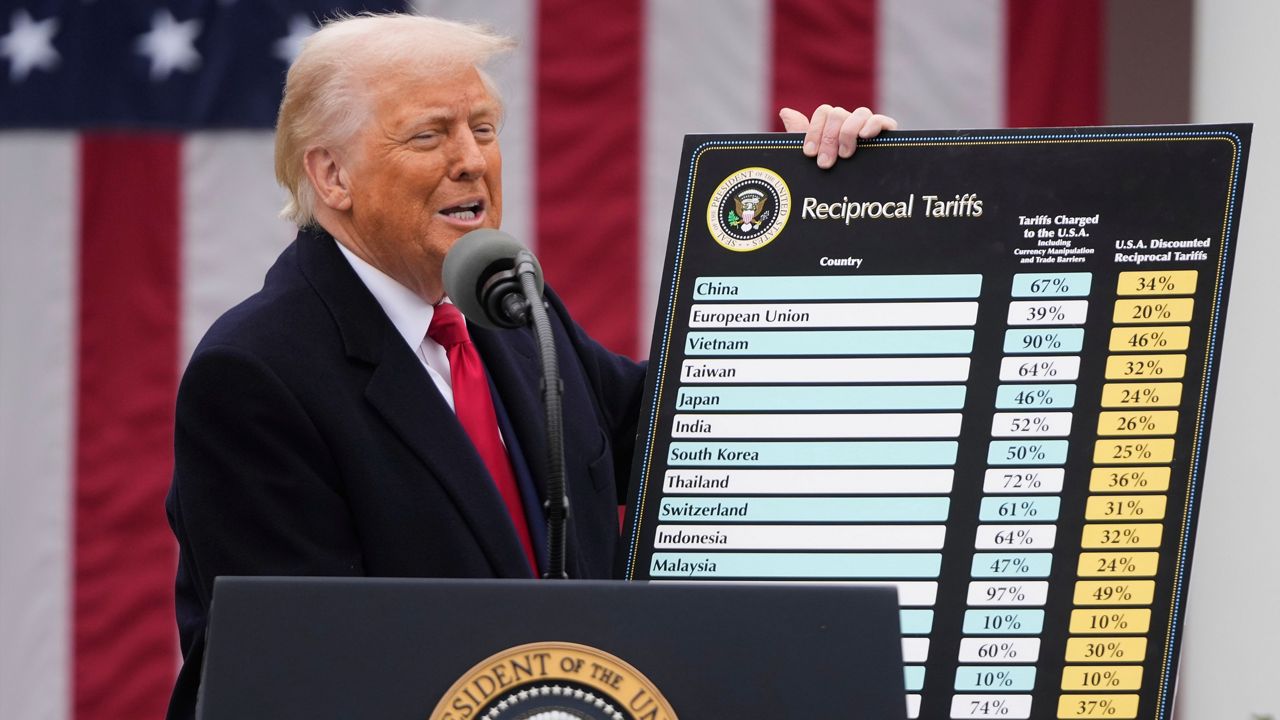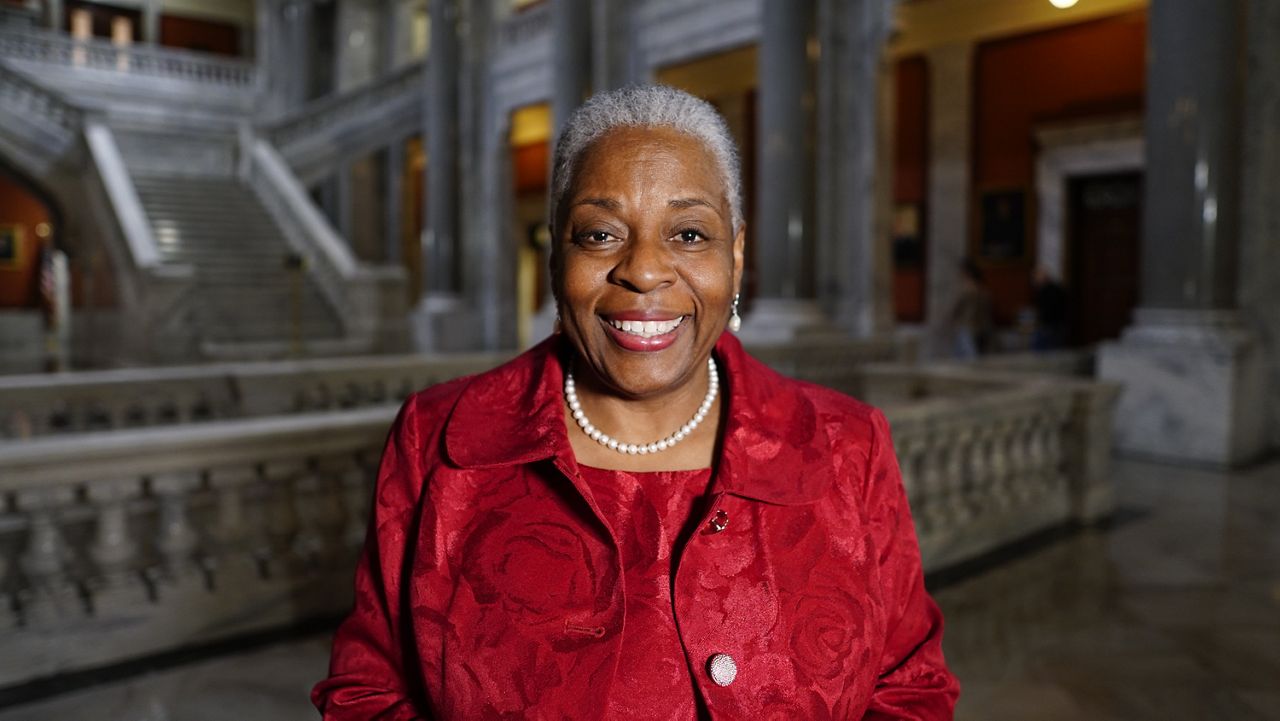LOUISVILLE, Ky. — Former Kentucky governor, Brereton Jones, has died.
Gov. Andy Beshear, D-Ky., announced Jones' death on social media calling him a "dedicated leader and distinguished thoroughbred owner."
Early life
According to the National Governors Association, Jones was from Point Pleasant, West Virginia. He was a 1961 graduate of the University of Virginia. He received his bachelor's degree in commerce.
Jones' political career began in his native West Virginia, where he was elected to the House of Delegates as a Republican. He moved to Kentucky and switched parties. He served as a Democratic lieutenant governor under Wallace Wilkinson from 1987 until he was elected to the state's highest office.
Jones' lieutenant governor campaign was largely self-funded from his personal wealth. He worked through his term as lieutenant governor and into his term as governor to recoup the money.
The Jones administration
Jones served as governor from 1991 to 1995.
In his run for governor in 1991, Jones promised to set a new ethical standard for the office. He also held himself out as someone above partisan politics. “I’m not a politician,” he was fond of saying, though he had been elected to office in two states, two parties and two branches of government. He beat out Republican Larry Hopkins for the job.
Jones' administration was memorable for a well-intentioned yet ultimately unsuccessful attempt at universal health insurance. He envisioned a system in which coverage would be accessible and affordable for everyone in the state, regardless of health history.
Insurers were forbidden to consider a person’s health when setting rates. No one could be denied coverage as long as they paid the premiums. Insurance policies were expected to be standardized — thus theoretically easier for consumers to compare — and a state board was created to regulate them.
Insurance companies refused to accede. Dozens of insurers bailed out of Kentucky, and costs for individual coverage soared. The initiative later was gutted or repealed by lawmakers.
When in office, Jones got the legislature to create an ethics commission for executive branch officials and employees. But despite his frequent speeches about ethics, Jones seemed to many to have a blind spot when it came to his own finances and business dealings.
Also under Jones, the legislature enacted its own ethics law, with its own ethics commission, following an FBI investigation of a legislative bribery and influence-peddling scandal.
During his time as the state's top elected official, Kentucky governors had to step aside after serving one term. Jones pushed to change the state Constitution to allow statewide elected officials to run for reelection for a second term. When the amendment passed, it exempted current officeholders like himself.
Jones left office after a single term. He was succeeded by Paul Patton, D-Ky. Reflecting on his term shortly before leaving office in 1995, Jones said he warmed to the job.
“I hated the first year,” he told an interviewer. “The second year, I tolerated it. I liked the third year, and the fourth year, well, I’ve loved it. It all passes so quickly.”
He also survived two serious accidents while in office from 1991 to 1995 — a helicopter crash and a fall from a horse. Both accidents left him with a severely injured back.
After office
After he left office, Jones became heavily involved in the thoroughbred industry. He served as chairman of the Kentucky Equine Education Project (KEEP). KEEP educated Kentuckians on the importance of the horse industry to the state's economy. Jones was considerered a prominent horse breeder.
He and his wife, Libby, founded Airdrie Stud, an internationally known thoroughbred farm in Midway in 1972.
Kentucky Horsemen’s Benevolent and Protective Association (HBPA) president, Rick Hiles, remembered Jones by saying in a statement, “Gov. Jones served the state of Kentucky well. He was a great horseman, was great for the industry and bred and raced a lot of great horses. It was so fitting that he won the Kentucky Oaks three times—like a well-deserved lifetime achievement award that kept multiplying. On a personal note, we were longtime friends - I even trained a horse or two for him. He was just so friendly and respectful of everyone at the racetrack, whether they ran the track or mucked out stalls. He will be sorely missed.”
Jones was 84 years old and is survived by his wife and two children, Bret and Lucy.










